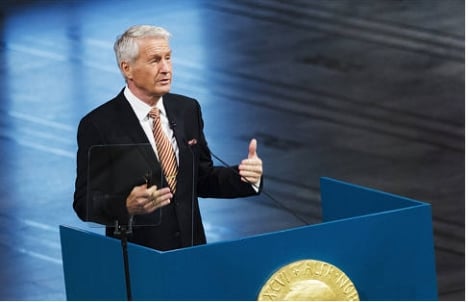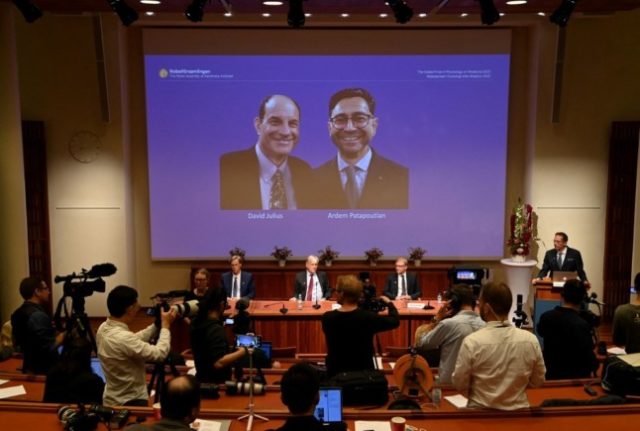NOBEL
Jagland voted Council of Europe head
The Council of Europe announced on Tuesday that it had elected Thorbjørn Jagland to a second five-year term at the head of the pan-European body, which recently played an active role in the Ukraine crisis.
Published: 25 June 2014 08:17 CEST

Thorbjørn Jagland giving his speech at the 2012 Nobel Prize ceremony - Norwegian Foreign Office
Jagland, a 63-year-old Norwegian, beat off competition from former German justice minister Sabine Leutheusser-Schnarrenberger, to win another mandate at the head of the rights body.
It is the first time since the Council of Europe was established in 1949 that a secretary general has been re-elected.
Jagland has played an active role in trying to ease the crisis in Ukraine, making several visits to Kiev as the unrest threatened to spiral into all-out war in Europe.
Aside from running the Council of Europe, Jagland also heads Norway's Nobel committee which hands out its famous prizes each year.
He is also a former leader of Norway's ruling Labour Party who has served as prime minister, foreign minister and speaker of parliament in his country.
The Council of Europe — not to be confused with the 28-country European Union — brings together 47 countries with a combined population of more than 800 million and has as its principle mission to defend human rights in its ranks.
In addition to the 28 EU countries, it counts Turkey and Russia as members.
Url copied to clipboard!


 Please whitelist us to continue reading.
Please whitelist us to continue reading.
Member comments